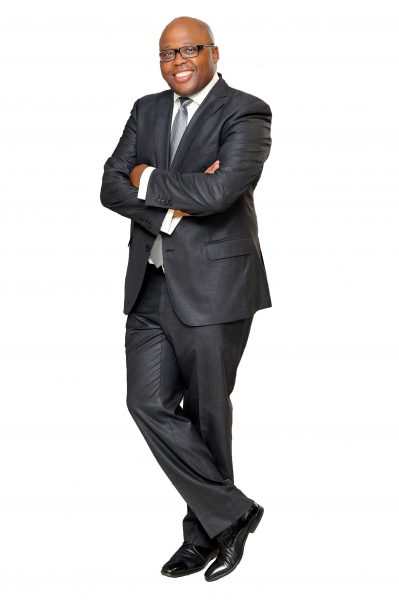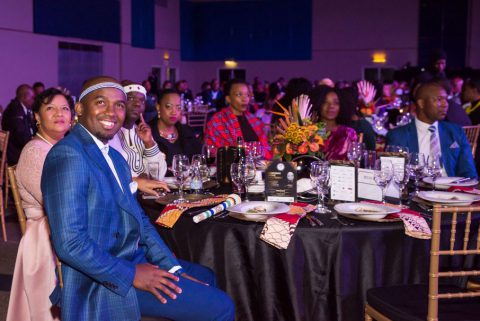Empowerment Government & Politics
Building A Prosperous South Africa
Justice Dikgang Moseneke writes in his book My Own Liberator, “when the Constitution was negotiated, the parties skirted around the need for social change. The negotiators did not stare the historical structural inequality in the economy, square in the eye. There was no pact on how to achieve the equality and social justice the constitution promised.”
As a country we need to appreciate the difference between reformation and transformation. For the past 23 years we have been fed reformation disguised as transformation, but these are two very different things: reformation is about improvement and betterment – a chameleon changing colours depending on the environment, but it is not transformation. Transformation is a metamorphosis – a profound change, taking a different form when moving from one stage to the other. Anything else is not transformation. It has to be a complete change, and it cannot happen without pain.
As the Black Management Forum (BMF) we are excited that the Johannesburg Stock Exchange (JSE) has finally taken seriously our stances on making transformation a  business imperative by including race and gender as part of the listing requirements. In our submission we further proposed that the racial composition of the Boards must be at least 60 per cent black and the gender composition must be at least 40 per cent.
business imperative by including race and gender as part of the listing requirements. In our submission we further proposed that the racial composition of the Boards must be at least 60 per cent black and the gender composition must be at least 40 per cent.
We concluded that the racial composition of the executive committees must be at least 50 per cent black and that the female composition must be at least 40 per cent. These targets should be achieved in the next three to five years.
South Africa has to meet the challenge of building a truly inclusive economy that will address the injustices of the past. The current political rhetoric in the country and the growing militancy of the youth are signs of bigger problems that will emerge if this is not addressed. We are facing the consequences of skirting around the need for social change.
The state of transformation in South Africa today can be unpacked as follows:
Land ownership
According to the Department of Rural Development and Land Affairs, results show that about 14 per cent of land is registered as state land and 4 per cent recently-surveyed state land; while 79 per cent is in private hands. Of this 79 per cent, a significant percentage belongs to private individuals, companies and trusts.
Black ownership
In JSE listed companies, whether it is 3 or 10 per cent direct ownership according to JSE methodology, the number remains embarrassingly low – 23 years into our democracy. The JSE study found that white South Africans hold a share of about 22 per cent of the Top 100 companies while foreign investors hold about 39 per cent. The argument of indirect ownership of black people is a non-starter as the state is neither black nor white.
Black executive managers
The Jack Hammer Executive Report that was released late 2015, reveals that the proportion of black South African CEOs has fallen from 15 per cent in 2012 to 9.8 per cent in 2015 – taken from a total of 334 people constituting the executive teams in SA’s Top 40 companies, 21 per cent are black South Africans but, only half of them are currently in business strategy, operations or finance positions – destined for company leadership. Essentially, there are about 70 black South Africans who are executives in the Top 40 JSE-listed companies: as far as management representation is concerned, whites are only 10 per cent of the economically active population but occupy more than 70 per cent of the top management positions.
Black household income
The average annual black household income is R74 000 compared to that of a white household, which is R445 000. White families earn six times more than black families.
Unemployment rates
There are more than 40 per cent of black people who are unemployed, compared to only 6 per cent of white people.
Based on the above statistics, it is clear that we are sitting on a time bomb as a nation. Business and other institutions have been subscribing to a minimalist approach as far as the implementation of transformation is concerned. It is evident that self-regulation in matters of transformation has clearly failed. The stakes are usually high in BEE and the outcomes are drastic, it could conceivably be seen as radical. Consequently those who actively champion this subject easily attract labels and sometimes condemnations. BEE and Transformation are controversial and challenging but when effectively carried out they change lives.
I acknowledge that we will have to work tirelessly in growing our economy if we are to reverse the reality stated above.
However, the country has grown impatient of the slow pace of transformation. Our CODESA negotiators did not stare each other in the eyes to find solutions to our historic cultural inequality in the economy. The time for an economic CODESA has arrived. This CODESA will assist us in finding solutions within constitutional boundaries to challenges relating to land; black ownership at the JSE; representation of black talent in top management; etc. Although time is running out, we still have a final opportunity to right the wrongs of apartheid and correct the mistakes of our negotiated settlement. Economic transformation will build a prosperous South Africa.






 Sign-up and receive the Business Media MAGS newsletter OR SA Mining newsletter straight to your inbox.
Sign-up and receive the Business Media MAGS newsletter OR SA Mining newsletter straight to your inbox.